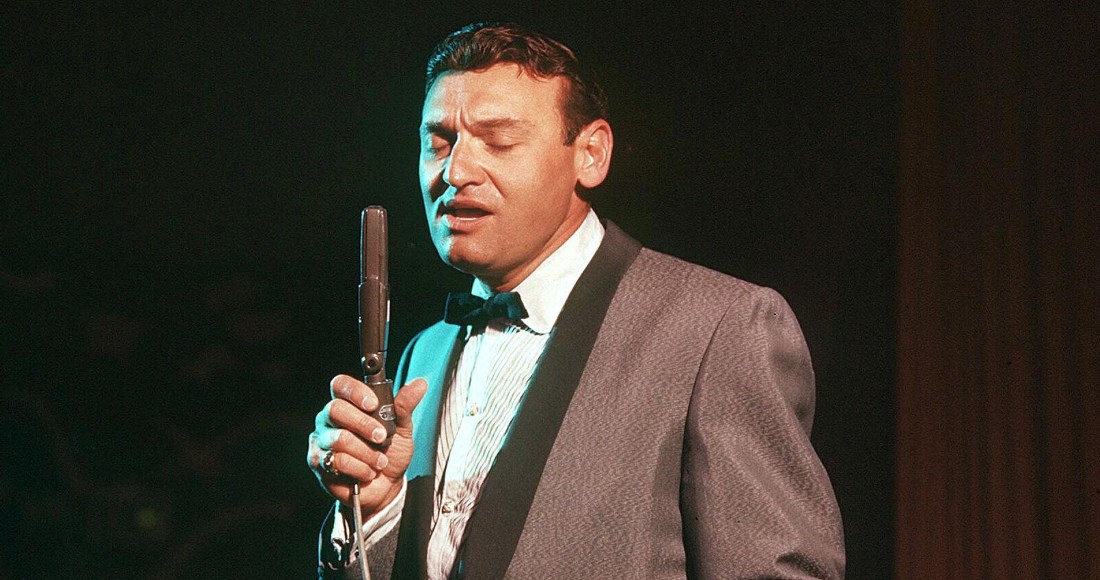Frankie Laine (born Francesco Paolo LoVecchio on March 30, 1913, in Chicago, Illinois) was an American singer, songwriter, and actor whose career spanned seven decades. Known for his powerful voice and emotive delivery, Laine became one of the most popular singers of the post-World War II era. His wide-ranging vocal style crossed over multiple genres, including jazz, pop, gospel, country, and folk, earning him a reputation as one of the most versatile and influential vocalists of his time. Laine is particularly recognized for his work in Western-themed songs, which became some of his most enduring hits.
Musical Style and Innovations
Frankie Laine’s vocal style was characterized by its raw emotional power and intensity. His voice had a natural richness and a powerful vibrato, which he used to deliver songs with a dramatic flair. Unlike many crooners of his era, Laine’s delivery was often passionate and expressive, giving his performances a robust and dynamic energy that set him apart from his peers.
Laine’s ability to adapt to various musical styles made him a standout artist. He had success in both the pop and country charts, and he was also able to perform ballads, swing, gospel, and folk with equal mastery. He was not bound by any one genre, and his work influenced a wide variety of artists in different fields.
Key Hits and Contributions
Frankie Laine is best known for a string of hits during the late 1940s through the 1950s. His breakthrough came in 1947 with the release of “That’s My Desire,” which marked the beginning of his rise to stardom. This song, with its romantic and soulful delivery, was one of the first to highlight his unique vocal style and propelled him to fame.
In the early 1950s, Laine began recording songs that became closely associated with the American Western genre, which led to some of his most iconic recordings. Hits like “Mule Train” (1949), “Rawhide” (1958), and “Gunfight at the O.K. Corral” (1957) became synonymous with the image of the American cowboy. His recording of “High Noon” (1952), the theme song for the classic Western film of the same name, further cemented his association with Western-themed music.
One of his most successful songs was “Jezebel” (1951), a dramatic, almost operatic performance that demonstrated Laine’s ability to convey deep emotion. He was also known for gospel-inspired hits like “I Believe” (1953), which became one of the best-selling records of the decade and showcased his spiritual and uplifting style.
Influence on Popular Music
Frankie Laine was one of the most significant vocalists of the pre-rock-and-roll era, and his influence stretched into the early rock era. His powerful voice and emotional depth influenced later singers like Elvis Presley, Roy Orbison, and Johnny Cash, who admired Laine’s ability to blend raw emotion with technical proficiency. His Western-themed recordings also contributed to shaping the “cowboy music” genre, which became an integral part of American pop culture in the 1950s and 1960s.
Laine was also ahead of his time in terms of musical arrangements. He often worked with innovative orchestras and producers, including Mitch Miller, to develop songs that incorporated bold, rhythmic elements, particularly in his Western songs. His crossover appeal made him one of the first major stars to bridge the gap between pop, country, and folk music.
Legacy and Recognition
Over the course of his career, Frankie Laine sold over 100 million records worldwide, and his songs remained popular long after their initial release. Laine received numerous accolades, including a star on the Hollywood Walk of Fame. His impact on American music is recognized both for his contribution to the Western genre and his ability to transcend musical boundaries.
Despite the arrival of rock and roll in the mid-1950s, which shifted the popular music landscape, Laine’s popularity endured well into the 1960s. His theme song for the television show “Rawhide” became iconic and is still widely recognized today.
Frankie Laine’s influence continues to be felt in both pop and country music. His ability to imbue his performances with passion and power remains a defining aspect of his legacy, and his Western-themed songs continue to be featured in films, television, and pop culture.
YouTube – Frankie Laine – Topic:
https://www.youtube.com/channel/UCIl7zxRAVLzwDr4dz7Cyd1A
References
- Murrells, Joseph. The Book of Golden Discs. Barrie & Jenkins, 1978.
- Laine, Frankie, and Joseph F. Laredo. That Lucky Old Son: The Autobiography of Frankie Laine. Pathfinder Publishing, 1985.
- “Frankie Laine.” The Guinness Encyclopedia of Popular Music. Guinness Publishing, 1992.
- “Frankie Laine.” AllMusic Biography by Steve Huey. Available at: allmusic.com
- Pareles, Jon. “Frankie Laine, Stirring Singer of Hits, Dies at 93.” The New York Times, February 7, 2007.


Leave a Reply